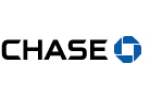Chase Home Equity Loan Review January 2026

Tap into your home’s equity for financial flexibility
How much do you want to borrow?
Checking your options won’t affect your credit
At Bills.com, we strive to help you make financial decisions with confidence. While many of the products reviewed are from our Service Providers, including those with which we are affiliated and those that compensate us, our evaluations are never influenced by them.
Only cash out mortgage available
| Amount | Currently not available |
| Term | |
| Rates | |
| Min. Credit Score |
In today's market, no real advantages since Chase does not have home equity products. They offer a cash-out mortgage, which is generally not a good option if you have a low mortgage rate.
No home equity option.
Does Chase Offer Home Equity Loans or HELOCs?
In general, Chase Bank offers HELOCs but doesn't offer home equity loans. Currently, due to market conditions Chase is not offering HELOCs but recommends looking into a cash-out refinance loan.
Before COVID, Chase Bank offered two home equity financing options: Home equity lines of credit and cash-out refinancing. A home equity line of credit or HELOC is a revolving line of credit. Borrowers can draw against it as needed to fund home improvements or repairs, cover higher education expenses, consolidate debt, or finance a big-ticket purchase.
Chase Bank is the consumer and commercial banking branch of JPMorgan Chase & Co. (NYSE: JPM). Founded in 1799, it's one of the oldest and largest financial institutions in the U.S. Chase Bank has more than 4,700 branches across the country and offers home loans, including home equity lines of credit and cash-out refinancing, in 47 states. HELOCs are not shown in Alaska, Hawaii, or South Carolina. The bank scored a rating of 843 in JD Power's 2021 US Primary Mortgage Origination Satisfaction Survey
Chase Bank Alternative Home Equity Products
Cash-out refinancing involves replacing an existing mortgage with a new home loan, ideally at a lower interest rate. The primary goal with a cash-out refi is to withdraw equity in cash; borrowers receive a lump sum at closing rather than gaining access to a line of credit. Refinancing with a cash-out mortgage can be more expensive than taking out a HELOC, as standard closing costs of 2% to 5% of the loan amount apply. This type of home equity financing is more suitable when borrowers can get a better deal on their loan terms and require a large sum of cash all at once.
Personal loans can be another way to get cash when needed. A personal loan can be secured or unsecured; secured loans that use a home as collateral are essentially home equity loans. Chase doesn't offer traditional personal loans, but the My Chase Loan is an option. This loan allows borrowers who already have a Chase credit card to borrow money against their card's credit limit without requiring them to complete a separate loan application.
Comparing Home Equity Products
Getting a Chase home equity loan isn't an option, as Chase Bank doesn't offer them. When comparing home equity loans with other lenders, it's helpful to understand their components. Here are some of the most important things to consider with home equity loans:
- Maximum loan-to-value (LTV) ratio
- Interest rate ranges
- Whether rates are fixed variable
- Minimum qualifications, including credit score and income requirements
- Maximum debt-to-income ratio
- Minimum and maximum home equity loan amounts
- Repayment terms
- Fees, including origination fees, application fees, closing costs, and prepayment penalties
- Added features, such as autopay interest rate discounts or customer loyalty discounts
Using a home equity loan calculator can help estimate borrowing amounts based on current equity in the home. Most lenders limit the loan-to-value after adding a home equity loan to 80%, but some will go to 85% or even 90% for well-qualified borrowers.
Chase HELOC
A Chase HELOC is a flexible line of credit that consumers can use to consolidate high-interest debts, fund home repairs, or pay for expensive purchases. At this time, HELOC applications are not available. The Chase website mentions that applications will reopen once market conditions improve.
Here are some of the key features to know about Chase HELOCs:
- Maximum LTV: Chase offers home equity lines of credit with a maximum LTV of 80%. Interested borrowers can use Chase's home equity line of credit calculator to estimate how much they may be able to borrow.
- Interest rates: Chase HELOCs have variable interest rates, though current rates are unavailable as new loans are not being granted. There's also the option to switch to a fixed rate once the draw period begins.
- Credit score and income requirements: Chase does not publish minimum requirements, including credit score and income guidelines, online. A higher credit score, higher income, and higher loan-to-value ratio can all be advantages when applying for a Chase HELOC.
- Loan amounts: The minimum HELOC amount is $25,000, while the maximum homeowners can borrow is $500,000.
- Loan repayment terms: Chase HELOCs have a 10-year draw period in which customers can tap their lines of credit. After the initial draw period ends, loans are repayable over 20-years, though it is possible to pay them off early.
- Added features: Chase offers numerous opportunities to qualify for rate discounts when applying for a home equity line of credit. For example, new customers can save 0.25% with qualifying personal deposits or investments with Chase.
- Fees: Chase does charge an origination fee for its HELOC product. There's also an application fee, though borrowers do not pay any closing costs or annual fees once their home equity line of credit is approved.
How to Apply for Chase Home Equity Loans
As of January 2022, applications for Chase HELOCs are closed, and there's no definite consensus on when they might reopen. It's still possible, however, to apply for a cash-out refinance loan with Chase online. Existing Chase customers can log in to online banking to prefill the application, saving time.
When applying for a home equity loan or a home equity line of credit, it's helpful to understand what information may be required. Lenders can ask for several details about the borrower, including their name, date of birth, Social Security number, employment history, income, and contact information. The lender will also need to know a few things about the property in question, including:
- The address where the property is located
- What type of property it is (i.e., single-family home, townhouse, condo, etc.)
- Original purchase price of the home
- Purchase date
- The estimated value of the property
- Whether there are any co-owners, co-borrowers, or liens against the property
Borrowers typically need to tell the bank how much they want to borrow with a home equity loan or line of credit. Additionally, the lender may ask for some demographic information, including the borrower's race, ethnicity, or gender.
Most lenders make it possible to apply for home equity loans or home equity lines of credit online. Completing the application may take just a few minutes initially, though lenders may ask for documents to be uploaded later. This can include copies of income tax returns, W-2s, pay stubs, and bank account statements.
The processing time for home equity loan and HELOC applications can vary from lender to lender. The lender may perform a hard credit check during the prequalification process. Hard credit pulls can show up on consumer credit reports and potentially lower credit scores by a few points.
Chase Expert and Consumer Ratings
Chase Bank home equity financing is the subject of many expert reviews and consumer reviews. In writing our review, we compared ratings from 10 different organizations, including Trustpilot and the Better Business Bureau.
On average, Chase Bank has a 3.5 star rating. The lowest ratings and reviews come from Trustpilot and the Better Business Bureau, which feature user ratings from past and present Chase customers. It's important to remember that those, along with expert reviews, are subjective.
Chase Pros
Chase Bank is one option for getting a home equity loan or cash-out refinancing. Before applying, it helps to understand what advantages these loans might offer.
- Low fees. There are no closing costs associated with Chase HELOCs, and borrowers pay no application fee. The origination and annual fee are $50 each, though that's less than what other lenders may charge.
- Rate discounts. Borrowers can qualify for several interest rate discounts if they have accounts with Chase already and/or enroll in autopay. These discounts can help to reduce the total interest paid overall.
- Fixed-rate option. It's possible to convert a variable rate Chase HELOC balance to a fixed-rate loan after the initial draw period begins. This may appeal to borrowers who want a predictable monthly payment.
Chase Cons
While Chase HELOCs have some advantages, there are some potential drawbacks to consider. Here's what's noteworthy on the cons side.
- Loan limits. Chase caps home equity lines of credit at $500,000 and requires a minimum of $25,000. Other lenders may offer HELOCs up to $1 million or set the minimum threshold to borrow lower.
- No home equity option. Chase does not offer a home equity option directly, which may be less attractive for borrowers who'd prefer a lump sum of funding rather than a line of credit. Home equity loans can also offer low fixed interest rates.
- High lifetime APR. The lifetime APR for a Chase HELOC is capped at 21%, which could make it an expensive borrowing option.
Home Equity Loan Alternatives to Chasee
Don’t see what you want here? Other lenders offer home equity products that might be better for you. Remember to compare programs and pricing to get a good deal.

Tap into your home’s equity for financial flexibility
How much do you want to borrow?
Checking your options won’t affect your credit
